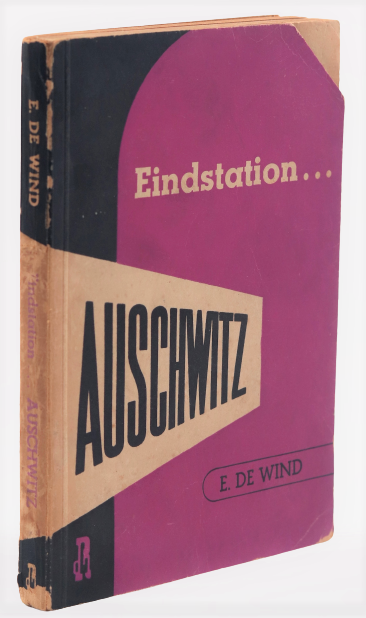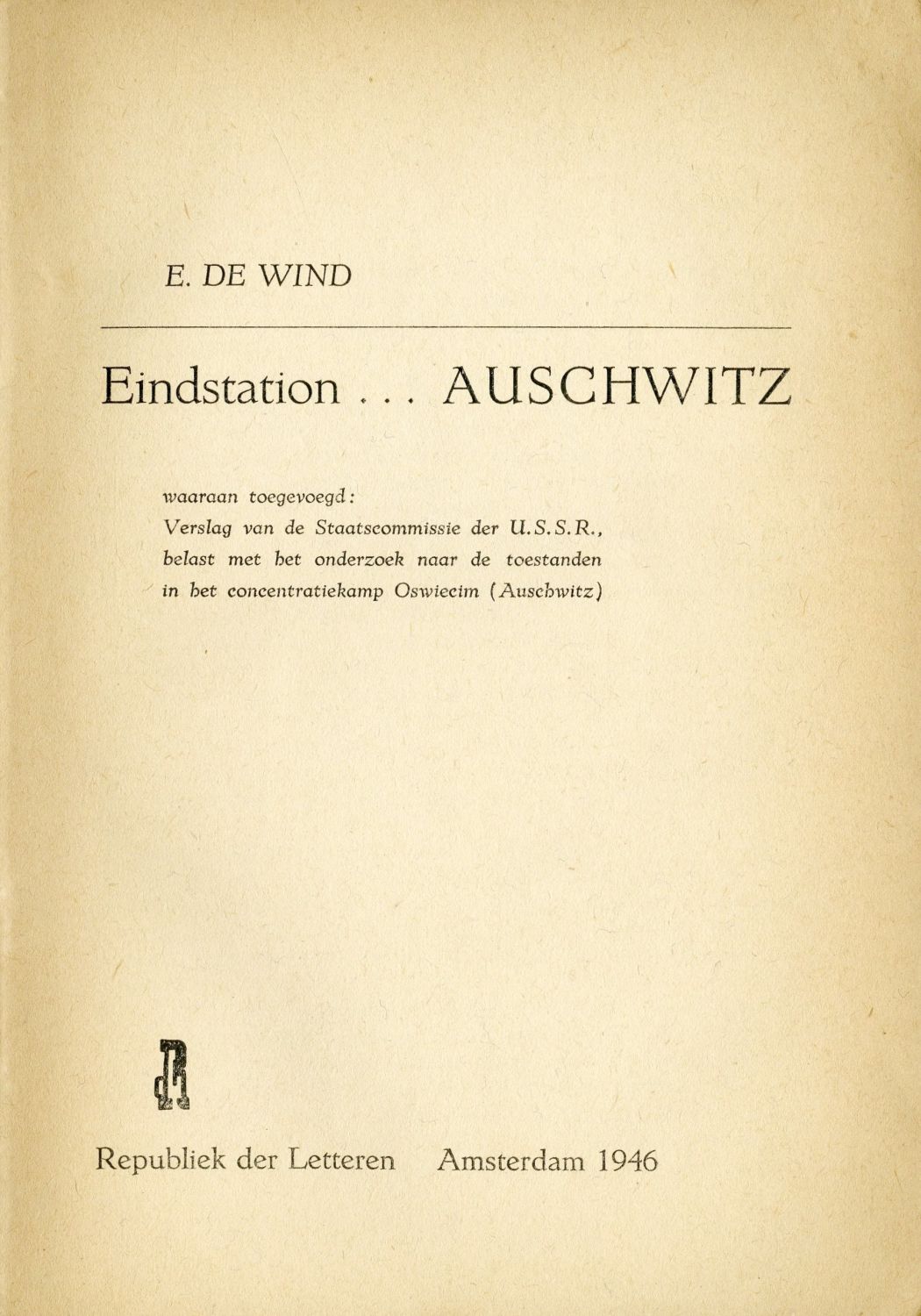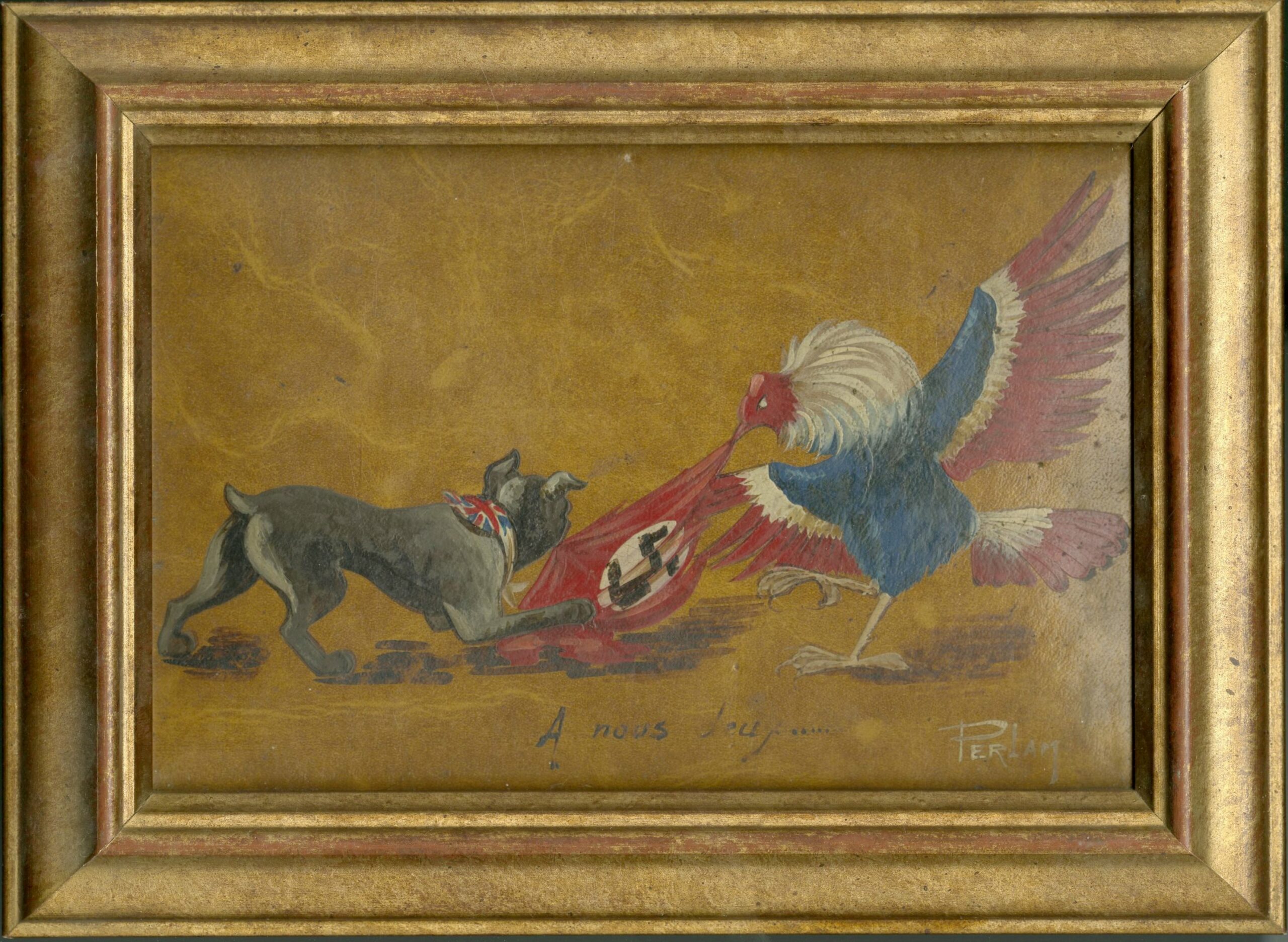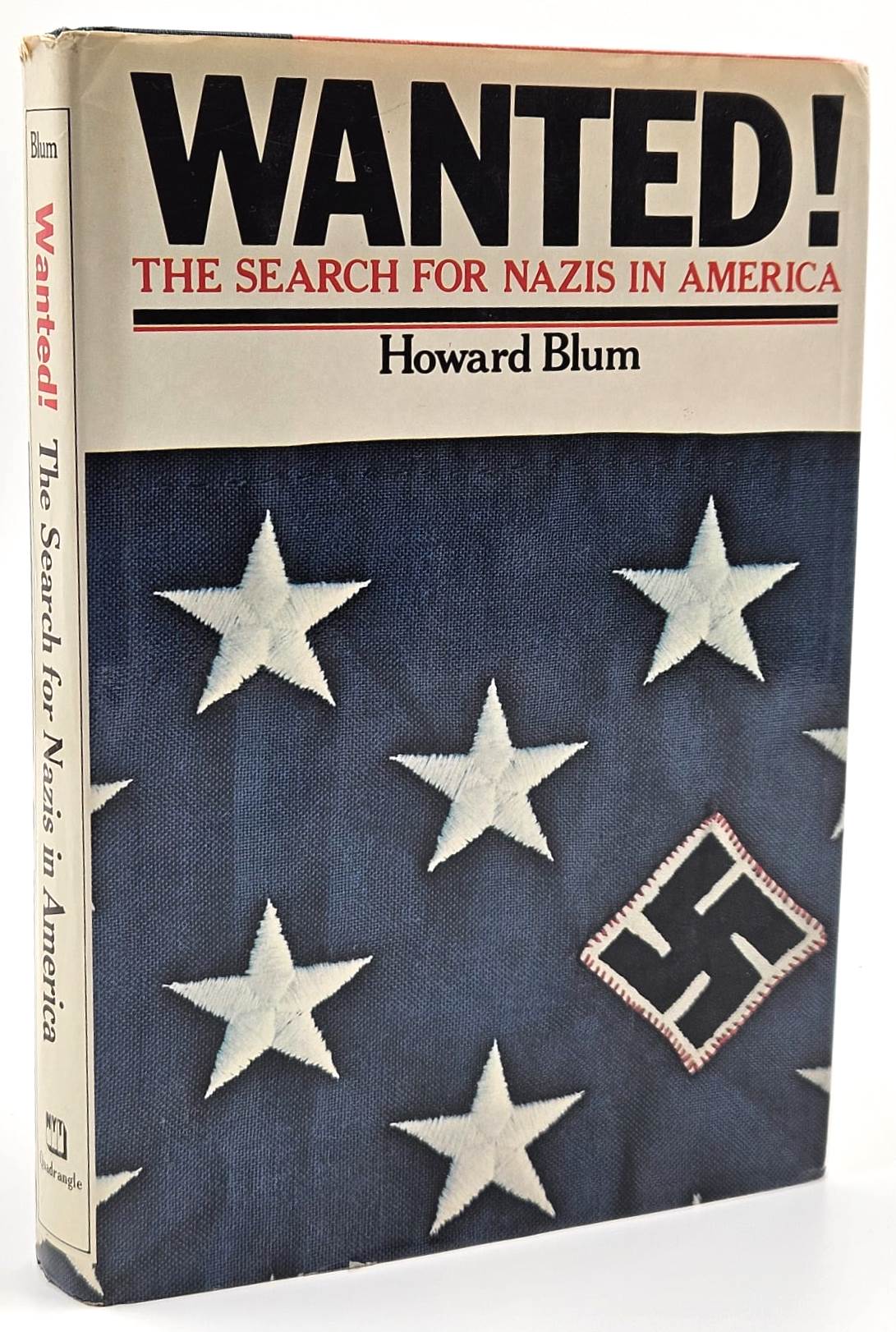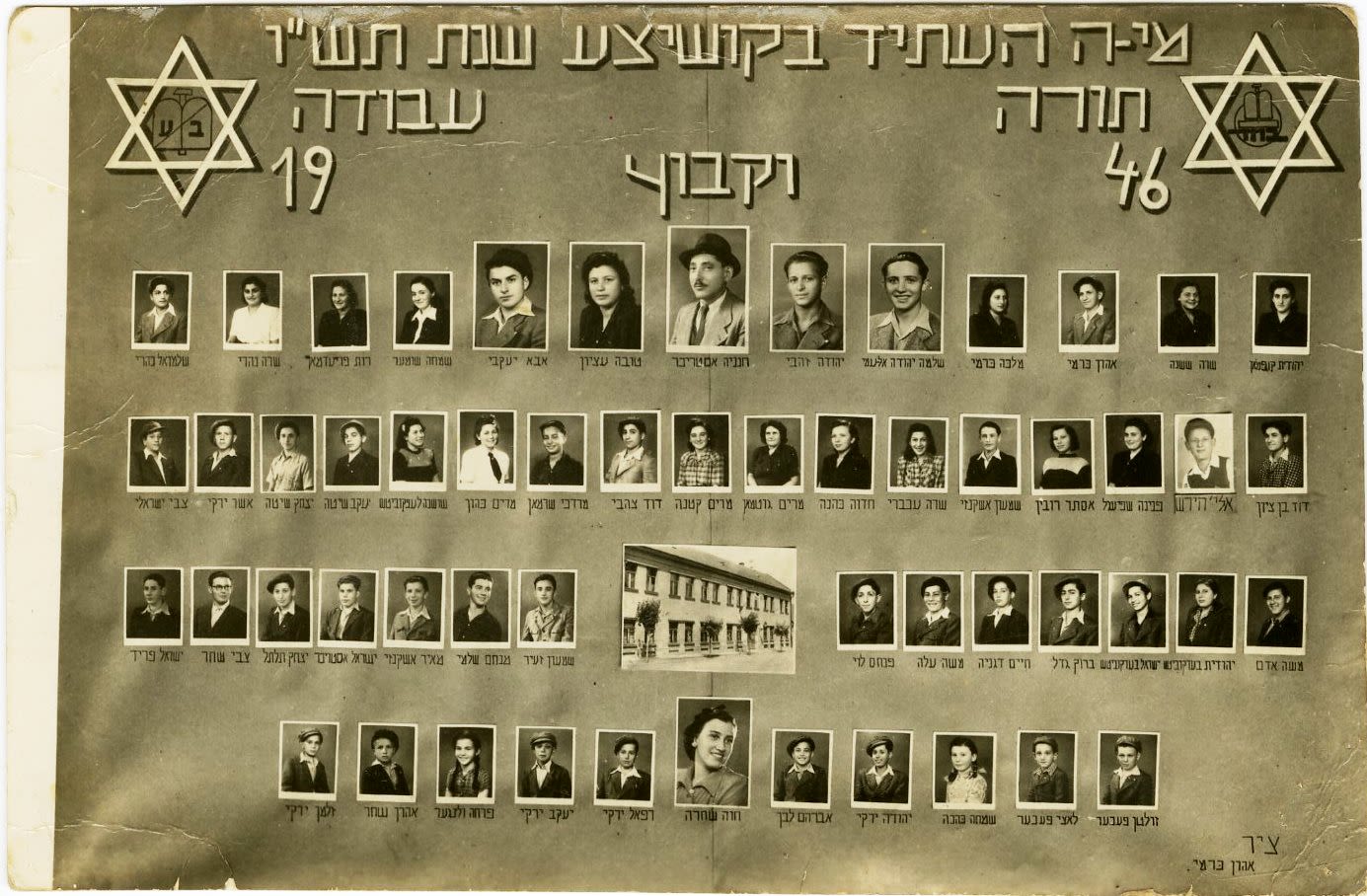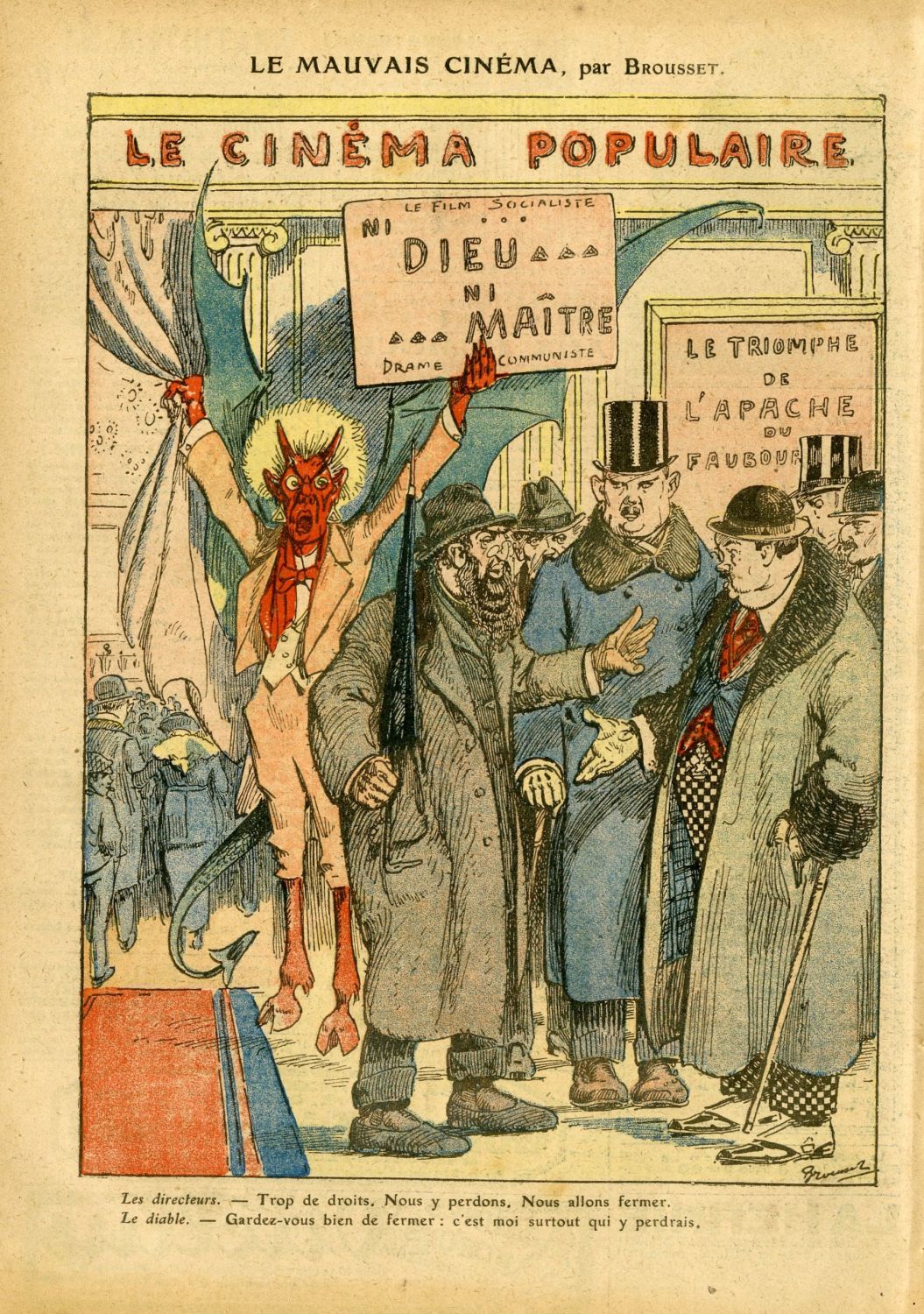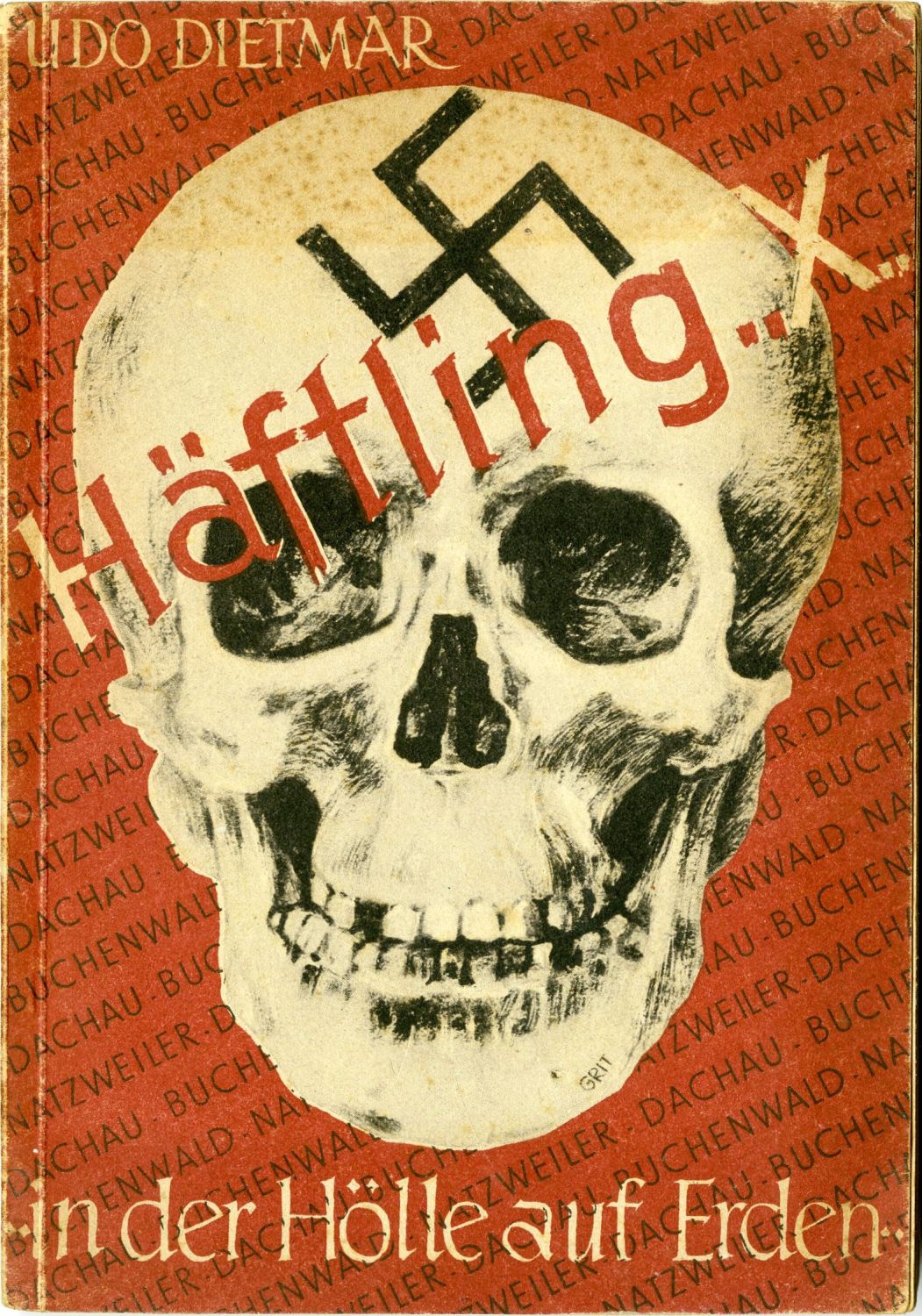"I need to let everyone know what happened here. If I catch it now and everyone knows, it will never happen again." Eindstation Auschwitz - the final station - Auschwitz, by Eddy de Wind, Republiek der Letteren - Amsterdam, 1946 - first edition. Dutch. The only prisoner's diary written in the Auschwitz camp itself and published immediately after the war. Dutch. Important and rare documentation that broke into the world's consciousness in recent years.
Eddy de Wind [1916-1987] was the last Jewish doctor who graduated from Leiden University in the Netherlands during World War II. He was caught in the midst of the pogrom of February 23, 1941, when the Germans arrested 427 Jewish men in the old Jewish quarter of Amsterdam. Of that group, only three, including De Wind, survived the Holocaust. Although he managed to escape from that arrest, he decided to return to the inferno in an attempt to save his mother, and volunteered to serve as a doctor in the Westerbork labor camp in order to find her. But when he arrived at the camp he learned that his mother had already been sent to Auschwitz. In Westerbork he met and married his first wife Friedel within a few weeks. The couple was deported to Auschwitz in 1943. The two were imprisoned in nearby barracks - block 9 and block 10 (in block 10 the Nazis conducted the infamous medical experiments witnessed by de Wind) which were located near the crematorium with the stench of cremation of the bodies, and were only a few meters away from each other. The couple kept in touch through notes they passed through the barbed wire fence of the barracks. Both knew Josef Mengele and had to work with him during their stay in the camp. On one occasion towards the end of the war he learned that his wife had been taken to one of the death marches, De Wind was sure until the end of the war that she had perished, and he was already mourning her death. After the war when he returned to the Netherlands in 1945 he learned that she had survived and the two come together.
In the diary he started writing in the camp a few months before liberation, he describes the daily struggle to survive, and the horrifying Nazi crimes that occurred before his eyes every day, the Nazi torture and sadistic methods, and the process of extermination in detail. In addition, he describes long conversations he had with prisoners, or with the SS commanders on the day they occurred. The terrible things that he wrote and published in the book before us, he wrote in the first months of 1945, while lying on the wooden bunk in block 19 in the camp, hiding under a pile of old clothes. In those months, a large part of the Nazi commanders left the camp, and Eddy, who realizing that the liberation is coming, began to write in hiding. Shortly after, the Russian army arrived. At the request of the medical staff, he joined the Russian army and stayed several more months in Auschwitz, mainly to treat the sick and wounded who remained in the camp. During the day he worked as a doctor under the most horrifying circumstances imaginable, in the evenings he continued to write his story. This is the only diary we know of that was written in Auschwitz in "real time" and was not influenced by faded or inaccurate memories, or by reports received after the war. On one occasion during the liberation while the exhausted survivors were looking for food, medicine and their loved ones, he met a worried survivor who saw how her mother died of starvation in the camp and had to bury her. She turned to him saying: "They will never believe us in Holland when we return and tell them what happened here", De Wind replied: "I intend to publish official reports that will prove the truth of our stories" (based on his diary he wrote in the camp).
After the last patients left Auschwitz, he traveled with the Russians to Ukraine and took the notebook with him. Holland was still occupied and at that time he still could not return to it. On July 24, 1945, he finally arrived in Holland with the diary in one of the jacket pockets of his Russian uniform. In September 1945 he visited the writer and psychiatrist Simon Westedijk, who himself was imprisoned several times by the Germans during the war. Vestedijk advised him to publish the diary through a communist publisher from Amsterdam. Eddy published the diary while standing and supervising the typist to write word by word exactly as it appeared in the diary no editing changes at all. In February 1946 the book was published by "Republiek der Letteren" in a limited number of copies. In the following years, De Wind treated many survivors of the Nazi death camps, and even developed the theory of "concentration camp syndrome", which explains the side effects of former death camp inmates, and the consequences for their family members, A theory with which he treated the scarred survivors..
For decades, the book served for survivors of Auschwitz as the most accurate tool of expression that told their story - in its only Dutch edition that was released. In the last years before his death, Eddy prepared an English edition. His death came suddenly before he could publish it in English. Since the publication of the Dutch edition after the war, another edition was never published until the English translation appeared in January 2020 - in preparation for the 75th anniversary of the liberation of Auschwitz. Eddy de Wind's family decided to publish the book in English. The book was an unprecedented success in its English edition and then was published by various publishers in England, America, Canada, Spain, Portugal, France, Italy, Greece, Germany, Norway, Denmark, Finland, Sweden, Hungary, Poland, Czech Republic, Lithuania, Brazil, China, Japan. It was published in 23 languages, in more than 100 countries, and Eddy's story became famous all over the world, just as he expressed in his heart's desire at the end of the war. Before us, as mentioned, is the first, important and rare Dutch edition of the book.
195 p. 20 cm. Missing tear in the corner of the front cover, slight paint peeling on the spine. The body of the book is in very good condition.
